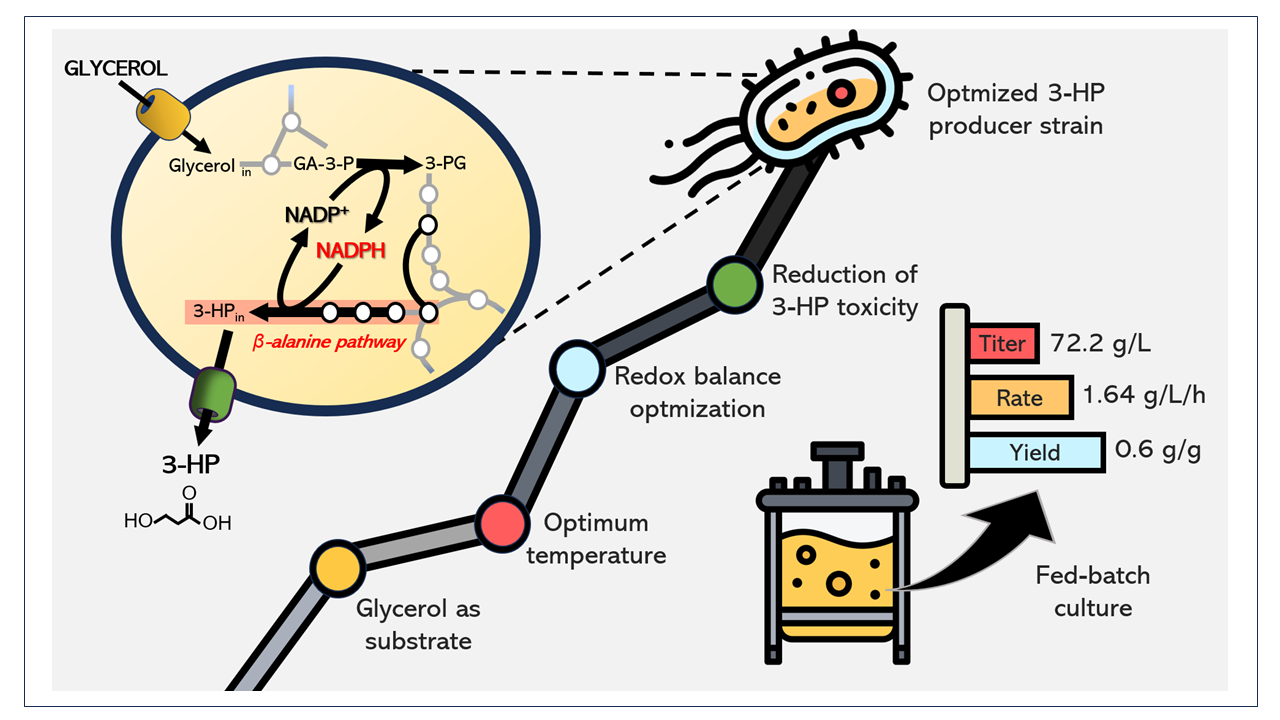LaFaC research advances the production of a new ingredient for biodegradable polymers
 Concerns about the environmental impact of human activity have inspired the development of products and processes aligned with the principles of the green economy, which seeks to reduce pollutant emissions into the atmosphere and promote the use of sustainable technologies. In this context, several efforts are underway to develop biodegradable polymers capable of replacing petroleum-derived materials. Among the new materials under development is 3-hydroxypropionic acid (3-HP), which can be used in the production of the biopolymer poly-3HP as well as acrylic acid, widely employed in the manufacture of plastic materials.
Concerns about the environmental impact of human activity have inspired the development of products and processes aligned with the principles of the green economy, which seeks to reduce pollutant emissions into the atmosphere and promote the use of sustainable technologies. In this context, several efforts are underway to develop biodegradable polymers capable of replacing petroleum-derived materials. Among the new materials under development is 3-hydroxypropionic acid (3-HP), which can be used in the production of the biopolymer poly-3HP as well as acrylic acid, widely employed in the manufacture of plastic materials.
Sustainable production of 3-HP from microorganisms represents a promising approach. However, until recently, the feasibility of this process was hindered by the need for costly inputs, such as vitamin B-12, or by the use of pathogenic microorganisms, which are undesirable for large-scale production. Addressing this challenge, researchers at LaFaC developed a recombinant, non-pathogenic Escherichia coli strain capable of producing 3-HP without requiring vitamin B-12. By combining genetic modifications to balance cellular metabolism with process parameter optimization, remarkable results were achieved in terms of yield, productivity, and final 3-HP concentration during cultivation in bench-scale bioreactors. The full details and results of this study were published in Bioresource Technology and can be accessed here.
The next stages of this work aim to eliminate two additional costly components from the growth medium and, in collaboration with Prof. Felipe Furlan, to assess the production metrics required to achieve the economic viability of the process."
 (2).png)